stdClass Object
(
[id] => 16310
[title] => The great freedom of the holiday
[alias] => the-great-freedom-of-the-holiday
[introtext] => On the border and beyond/13 - There is more to life than just work and much more than consumption
by Luigino Bruni
published in Avvenire on 16/04/2017

"Live! Live the wonderful life that is in you! Let nothing be lost upon you. Be always searching for new sensations. Be afraid of nothing.... A new Hedonism— that is what our century wants. You might be its visible symbol. With your personality there is nothing you could not do. The world belongs to you for a season..."
Oscar Wilde, The Picture of Dorian Gray
The capitalist religion wants to abolish the holiday. It declared a real war against it, which is accompanied by an explosion of entertainment and leisure offers that contain nothing, or too little, of the experience of the holiday. This is another expression of the now famous 'creative destruction' of the twenty-first century capitalism, which first eliminated the holiday and then started selling goods to us trying to replace it. But it cannot, because gratuity cannot be sold or bought. And so its entertainments leave just a great emptiness in us and a great longing for the real holiday, of which mostly children and young people have the greatest need. Only the civilization that knows the different times and free spaces of gratuitousness can be a culture capable of and characterized by celebrating holidays.
[fulltext] => Celebrating holidays is a basic and fundamental human need for men, women, young girls and boys, the sick and the old. You cannot live long without holidays. You may possibly survive, but without holidays, individual and social life becomes sad and slowly dies away. Holiday is the relational good par excellence, you cannot celebrate alone. Perhaps there are some things we can do alone, like amusing in front of the TV, smart phones and PCs; but for celebrating a holiday others, companions, children are needed. In the Bible, the concept of holiday is deeply tied to the seventh day, the Sabbath (Saturday). In the beginning of creation, the first one to celebrate was Elohim himself, who had to arrive at the end of creation and wait for Adam to be able to celebrate. Even God needs company to celebrate. He needs the company of his creation, the earth - he needs our company. If it is true that the Sabbath is the great gift of Elohim to the earth, it is also true that the Shabbat is the gift of reciprocity that the creation returns to the creator, because it gives him a chance to rest and celebrate along with us.
In the Shabbat we can and should make merry, visit friends and relatives, pray and sing together. The Shabbat is the mother of all biblical festivals and our Sunday, because it is a remembrance-memory of creation, the Alliance, and especially of the flight across the sea. Of the deliverance from Egypt, from slavery, from forced labour in brick factories. In biblical humanism, each holiday celebrated is a new liberation, a new sea passage, a new Exodus. It is a new Passover. The God of Israel is a different God because he does not want people to work forever. The idols, however, do not know the Sabbath, they do not know gratuitousness, the holiday, they want a perfect and perpetual worship.
Capitalist worship is characterized by being a religion-idolatry with no holidays celebrated. Until the twentieth century, with all its ambivalences and shadows, work culture had been a culture still on the side of life and, in the West, the heir of Judeo-Christian humanism, because it had preserved the boundary between work and holiday. There was much work done, even too much, but free men and women did not always work. There was time for rest and celebration. The blind forces of the capital would have liked, like all empires, all workers-slaves dedicated only to the production of their 'bricks'. But politics, churches, unions have prevented it, and so they have with-held the capital inside social and moral limits. In just a few years, however, capitalism has drastically and radically changed its face, and it has become something very different. Consumption has taken the place of work at the centre of the economic and social system, and all limits and boundaries were crossed. Work has an intrinsic limitation: we do not always work because we cannot work all the time. There is life outside of work that prevents work from becoming a perpetual activity. The innate toil of work is its first boundary. Consumption, however, does not know these boundaries, because - consisting of activities of pure pleasure - it does not have an internal limit. Many, perhaps all, would like stores that are open at any hour, at any time and in any place to satisfy all needs and whims. As long as the economic culture was spelled out by work, the shops were closed because the human work behind consumption commanded it and set its limits. And it set aside the time and space for holidays, it did not want a monopoly of either time or space. The closed shutters reminded everyone that life is greater than work and consumption. What makes us indignant and protest today is not that those dealing with blast furnaces in industrial enterprises, the police, the nurses and the emergency-room physicians have to work over the Easter holidays. Their work is not an enemy of the holiday, and those who meet these holiday workers recognizes their effort and are grateful for it.
Our culture centred on consumption does not see the hidden work behind it any more, or if so, it subjects and enslaves it to the ever-hungry idol. The only sovereignty recognised by the citizens-faithful of the mono-consumerist cult is consumer sovereignty, which is seriously undermining political citizenship. Work done for the idolatrous consumption is what denies the holiday and denies work.
This is why the struggle between capitalism and the holiday is very profound and radical. Large companies and banks, for example, are trying in every way to recreate the symbolic and emotional strength of the holiday, its ability to create a sense of belonging, team spirit, a 'sense of us'. The work culture of the past century has also been created by the popular, religious and secular holidays, by marriages and baptisms. Factories and offices have used that symbolic, social and spiritual capital they were receiving free from the communities in which their employees grew up and lived. The liturgies, processions, the days remembering the great sorrows and liberations fed the soul and all the virtues of the people, who gave these to their businesses for free while they worked, donating a much larger value in return for their wages. The capitals from which the profits of the companies came were (and are) worth much more than their private capital. Together with the men and women entering the company gates, civic, religious and moral values were introduced, too. No capitalist has ever paid for these - that's where the moral root of taxes lied, too, because in the profits there was much wealth donated to businesses by communities.
The individualistic and consumerist culture of capitalism of our time is wiping out these civil and spiritual capitals. Large companies feel the lack of it, even if they do not know how to identify the underlying reasons. And so they think that a company celebration/holiday, a convention or a drink on Friday afternoon could replace the capitals formed through several centuries. The symbols of the holiday without the popular and poor truth that created them only produces new griffins and minotaurs, hybrid monsters.
It is still too early to understand that the great famine at the doors of our economy is the dramatic shortage of spiritual, moral and symbolic capital, of which the companies have nourished themselves, but which are being used up faster than oil. The economy of sole consumption lives in an eternal present, without roots and without a future. Time, however, continues to run on earth. The scars and wrinkles of those who are around and besieging the temples of consumption, attracted by the same promise and illusion, are increasingly deep and painful, they grow and fill the world. And the club of the deluded, enchanted by the elixir of eternal youth, does not want to see them but it continues to produce them. However, unlike in the Oscar Wilde novel, the portrait with sores and wrinkles is not hidden in the attic: it is always in front of us. Only our eyes and our ability to be ashamed end up in the attic, for not wanting to see the real and ugly picture of what we are becoming. When will we begin to look at the wounds on the face of those who have been discarded by consumption, and start feeling responsible?
In a culture of work, to announce the liberation it brought about, the Bible gave us the Shabbat from work. In a culture of consumption, the biblical spirit should suggest a Shabbat from consumption, in order for us to say to the idolatry of our times: "you're not god, I am not your slave." Without a consumption-Shabbat we will not find a good relationship either with work or with the holiday any more. The blessed day when we decide to free up time and a place for non-consumer goods, to have a feast, to celebrate relationships, ties and gratuitousness would be the dawn of a new civilization.
The first request that Moses made to the pharaoh was to let the people free to go to the desert for three days to celebrate Passover (Exodus 5:3), which was an ancient festival of the transhumance of the herds. The pharaoh denied that permission, because slaves cannot make merry, because celebrating a holiday is already the beginning of the time of freedom. Without merrymaking, work is always slave work. And without time for the non-consumption of goods, slavery is perfect, because since the pain and fatigue are not there, consumption appears to us as freedom and we no longer feel the need for liberation.
Although we are no longer able to see them or recognize them, there are new pharaohs behind our work to ensure perpetual consumption and they do not want to leave us free to 'walk three days in the desert'. Maybe because they fear that the sea could open up again in front of us and we would never return.
Happy Easter!
The series 'On the Border and Beyond' ends today. We have been through some new pages written together, new discoveries, new-old dialogues and new graces. From next Sunday I will continue the commentaries on the Bible, with the prophet Jeremiah. We shall venture across the border again, begging for other words to keep walking in our tremendous and wonderful time.
download article in pdf
[checked_out] => 0
[checked_out_time] => 0000-00-00 00:00:00
[catid] => 810
[created] => 2017-04-20 21:00:00
[created_by] => 64
[created_by_alias] => Luigino Bruni
[state] => 1
[modified] => 2020-08-23 20:26:18
[modified_by] => 609
[modified_by_name] => Super User
[publish_up] => 2017-04-20 00:00:00
[publish_down] => 0000-00-00 00:00:00
[images] => {"image_intro":"","float_intro":"","image_intro_alt":"","image_intro_caption":"","image_fulltext":"","float_fulltext":"","image_fulltext_alt":"","image_fulltext_caption":""}
[urls] => {"urla":false,"urlatext":"","targeta":"","urlb":false,"urlbtext":"","targetb":"","urlc":false,"urlctext":"","targetc":""}
[attribs] => {"show_title":"","link_titles":"","show_tags":"","show_intro":"","info_block_position":"","info_block_show_title":"","show_category":"","link_category":"","show_parent_category":"","link_parent_category":"","show_author":"","link_author":"","show_create_date":"","show_modify_date":"","show_publish_date":"","show_item_navigation":"","show_icons":"","show_print_icon":"","show_email_icon":"","show_vote":"","show_hits":"","show_noauth":"","urls_position":"","alternative_readmore":"","article_layout":"","show_publishing_options":"","show_article_options":"","show_urls_images_backend":"","show_urls_images_frontend":""}
[metadata] => {"robots":"","author":"","rights":"","xreference":""}
[metakey] =>
[metadesc] => The new idolatrous cult of capitalism does not know the holiday because it does not know gratuitousness. Only slaves work non-stop to allow their masters to keep consuming. Easter is, therefore, liberation from merchandise to leave slavehood behind.
[access] => 1
[hits] => 3425
[xreference] =>
[featured] => 0
[language] => en-GB
[on_img_default] =>
[readmore] => 9565
[ordering] => 0
[category_title] => EN - On the border and beyond
[category_route] => oikonomia/sul-confine-e-oltre
[category_access] => 1
[category_alias] => en-on-the-border-and-beyond
[published] => 1
[parents_published] => 1
[lft] => 100
[author] => Luigino Bruni
[author_email] => ferrucci.anto@gmail.com
[parent_title] => Oikonomia
[parent_id] => 1025
[parent_route] => oikonomia
[parent_alias] => oikonomia
[rating] => 0
[rating_count] => 0
[alternative_readmore] =>
[layout] =>
[params] => Joomla\Registry\Registry Object
(
[data:protected] => stdClass Object
(
[article_layout] => _:default
[show_title] => 1
[link_titles] => 1
[show_intro] => 1
[info_block_position] => 0
[info_block_show_title] => 1
[show_category] => 1
[link_category] => 1
[show_parent_category] => 1
[link_parent_category] => 1
[show_associations] => 0
[flags] => 1
[show_author] => 0
[link_author] => 0
[show_create_date] => 1
[show_modify_date] => 0
[show_publish_date] => 1
[show_item_navigation] => 1
[show_vote] => 0
[show_readmore] => 0
[show_readmore_title] => 0
[readmore_limit] => 100
[show_tags] => 1
[show_icons] => 1
[show_print_icon] => 1
[show_email_icon] => 1
[show_hits] => 0
[record_hits] => 1
[show_noauth] => 0
[urls_position] => 1
[captcha] =>
[show_publishing_options] => 1
[show_article_options] => 1
[save_history] => 1
[history_limit] => 10
[show_urls_images_frontend] => 0
[show_urls_images_backend] => 1
[targeta] => 0
[targetb] => 0
[targetc] => 0
[float_intro] => left
[float_fulltext] => left
[category_layout] => _:blog
[show_category_heading_title_text] => 0
[show_category_title] => 0
[show_description] => 0
[show_description_image] => 0
[maxLevel] => 0
[show_empty_categories] => 0
[show_no_articles] => 0
[show_subcat_desc] => 0
[show_cat_num_articles] => 0
[show_cat_tags] => 1
[show_base_description] => 1
[maxLevelcat] => -1
[show_empty_categories_cat] => 0
[show_subcat_desc_cat] => 0
[show_cat_num_articles_cat] => 0
[num_leading_articles] => 0
[num_intro_articles] => 14
[num_columns] => 2
[num_links] => 0
[multi_column_order] => 1
[show_subcategory_content] => -1
[show_pagination_limit] => 1
[filter_field] => hide
[show_headings] => 1
[list_show_date] => 0
[date_format] =>
[list_show_hits] => 1
[list_show_author] => 1
[list_show_votes] => 0
[list_show_ratings] => 0
[orderby_pri] => none
[orderby_sec] => rdate
[order_date] => published
[show_pagination] => 2
[show_pagination_results] => 1
[show_featured] => show
[show_feed_link] => 1
[feed_summary] => 0
[feed_show_readmore] => 0
[sef_advanced] => 1
[sef_ids] => 1
[custom_fields_enable] => 1
[show_page_heading] => 0
[layout_type] => blog
[menu_text] => 1
[menu_show] => 1
[secure] => 0
[helixultimatemenulayout] => {"width":600,"menualign":"right","megamenu":0,"showtitle":1,"faicon":"","customclass":"","dropdown":"right","badge":"","badge_position":"","badge_bg_color":"","badge_text_color":"","layout":[]}
[helixultimate_enable_page_title] => 1
[helixultimate_page_title_alt] => Oikonomia
[helixultimate_page_subtitle] => Sul Confine e Oltre
[helixultimate_page_title_heading] => h2
[page_title] => On the border and beyond
[page_description] =>
[page_rights] =>
[robots] =>
[access-view] => 1
)
[initialized:protected] => 1
[separator] => .
)
[displayDate] => 2017-04-20 21:00:00
[tags] => Joomla\CMS\Helper\TagsHelper Object
(
[tagsChanged:protected] =>
[replaceTags:protected] =>
[typeAlias] =>
[itemTags] => Array
(
)
)
[slug] => 16310:the-great-freedom-of-the-holiday
[parent_slug] => 1025:oikonomia
[catslug] => 810:en-on-the-border-and-beyond
[event] => stdClass Object
(
[afterDisplayTitle] =>
[beforeDisplayContent] =>
[afterDisplayContent] =>
)
[text] => On the border and beyond/13 - There is more to life than just work and much more than consumption
by Luigino Bruni
published in Avvenire on 16/04/2017

"Live! Live the wonderful life that is in you! Let nothing be lost upon you. Be always searching for new sensations. Be afraid of nothing.... A new Hedonism— that is what our century wants. You might be its visible symbol. With your personality there is nothing you could not do. The world belongs to you for a season..."
Oscar Wilde, The Picture of Dorian Gray
The capitalist religion wants to abolish the holiday. It declared a real war against it, which is accompanied by an explosion of entertainment and leisure offers that contain nothing, or too little, of the experience of the holiday. This is another expression of the now famous 'creative destruction' of the twenty-first century capitalism, which first eliminated the holiday and then started selling goods to us trying to replace it. But it cannot, because gratuity cannot be sold or bought. And so its entertainments leave just a great emptiness in us and a great longing for the real holiday, of which mostly children and young people have the greatest need. Only the civilization that knows the different times and free spaces of gratuitousness can be a culture capable of and characterized by celebrating holidays.
[jcfields] => Array
(
)
[type] => intro
[oddeven] => item-odd
)







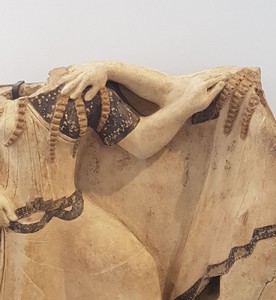 'When you were coming down from the quarry this afternoon with the loaded donkey cart, weren't you approached by a stranger? Didn't you give him a piece of bread?,' the carabiniere went on asking. (...) 'Is it a sin that he is accusing me of? Is it a sin now to do an act of charity?' 'Couldn't you see,' pursued the carabiniere (...), 'that the man was an enemy soldier?' 'Was he an enemy? What does that mean?' 'What did he look like?' asked the carabiniere. 'He looked like a man', Caterina answered.
'When you were coming down from the quarry this afternoon with the loaded donkey cart, weren't you approached by a stranger? Didn't you give him a piece of bread?,' the carabiniere went on asking. (...) 'Is it a sin that he is accusing me of? Is it a sin now to do an act of charity?' 'Couldn't you see,' pursued the carabiniere (...), 'that the man was an enemy soldier?' 'Was he an enemy? What does that mean?' 'What did he look like?' asked the carabiniere. 'He looked like a man', Caterina answered.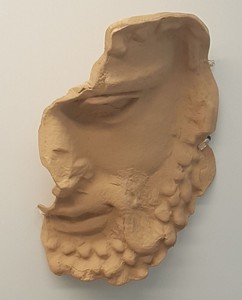 "Generosity, nobility have disappeared, and with them the spectacular counterpart that the rich reciprocated to the miserable."
"Generosity, nobility have disappeared, and with them the spectacular counterpart that the rich reciprocated to the miserable." The obligation of reciprocity in the exchange is not a response to specific powers linked to the objects, but a cosmic conception which presupposes an eternal circulation of species and beings"
The obligation of reciprocity in the exchange is not a response to specific powers linked to the objects, but a cosmic conception which presupposes an eternal circulation of species and beings"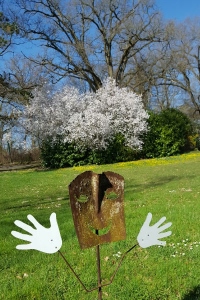 "Even if the world we live in is less violent than any world of the past, this is only one aspect. The other aspect shows exactly the opposite: a frightening increase in violence and in the threat of violence. Our world saves more lives and simultaneously produces more victims than it has ever happened in the past."
"Even if the world we live in is less violent than any world of the past, this is only one aspect. The other aspect shows exactly the opposite: a frightening increase in violence and in the threat of violence. Our world saves more lives and simultaneously produces more victims than it has ever happened in the past." "To seek, not the fruit of benefits, but the mere doing of them... - this is the mark of a soul that is truly great and good."
"To seek, not the fruit of benefits, but the mere doing of them... - this is the mark of a soul that is truly great and good."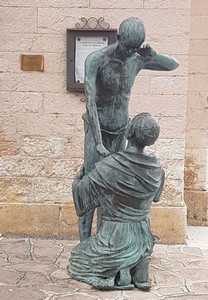 «In a world where money can buy anything, money becomes everything.»
«In a world where money can buy anything, money becomes everything.» «My words are too difficult for you, that's why they sound too easy.»
«My words are too difficult for you, that's why they sound too easy.»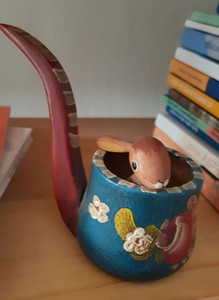 "Workplace spirituality seems to be a significant new management paradigm that business executives can use to improve their organizations by increasing, among others, the levels of organizational commitment, satisfaction and performance of their employees."
"Workplace spirituality seems to be a significant new management paradigm that business executives can use to improve their organizations by increasing, among others, the levels of organizational commitment, satisfaction and performance of their employees."
 "(C)apitalism is a pure religious cult, perhaps the most extreme there ever was. Within it, everything only has meaning in direct relation to the cult: it knows no special dogma, no theology."
"(C)apitalism is a pure religious cult, perhaps the most extreme there ever was. Within it, everything only has meaning in direct relation to the cult: it knows no special dogma, no theology." "All passions have a phase when they are merely disastrous, when they drag down their victim with the weight of stupidity — and a later, very much later phase when they wed the spirit, when they "spiritualize" themselves."
"All passions have a phase when they are merely disastrous, when they drag down their victim with the weight of stupidity — and a later, very much later phase when they wed the spirit, when they "spiritualize" themselves." "We can love nothing but what agrees with us, and we can only follow our taste or our pleasure when we prefer our friends to ourselves; nevertheless it is only by that preference that friendship can be true and perfect."
"We can love nothing but what agrees with us, and we can only follow our taste or our pleasure when we prefer our friends to ourselves; nevertheless it is only by that preference that friendship can be true and perfect."